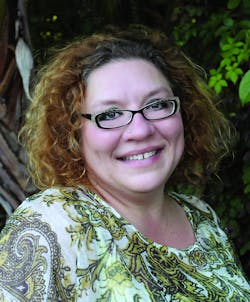My stepdaughter is transferring from a small, private university in Florida to the very public University of Florida (UF) this Fall. When she told me the news, I was a bit apprehensive. As a Florida State University (FSU) graduate myself, you may assume my disappointment lies in football rivalry. However, this is false. My anxiety stems from identifying her immunizations in a timely fashion as students will not be cleared to register for classes until all immunization requirements are met.
Her previous university had a student body of 4,200 students and did not require immunization certifications. The new university, topping 52,000 students, sent along paperwork that read like this:
Section A: Required immunizations: (1) MMR/Measles, Mumps, Rubella Vaccine, (2) Hepatitis B Vaccine, (3) MCV4 (Menactra/Menveo)/Meningococcal Meningitis Vaccine, and (4) Tuberculosis Screening (only required for international students).
Section B: Optional immunizations: (1) TD (Tetanus/Diphtheria) and/or Tdap (Tetanus/Diphtheria/Pertussis), (2) Varicella (Chickenpox), (3) Hepatitis A, HPV, Polio, and (4) Meningitis B.
In an article in the Gainesville Sun from March 30, 2019, the UF Student Health Care Center (SHCC) confirmed an increase in mumps cases. While UF requires all incoming students have the MMR vaccine, some students have the option to decline due to health, religious, or personal reasons, thus increasing the risk of contracting mumps.1
Most people receive the MMR vaccine as a toddler. However, after 20 years, the vaccine reduces to 88 percent effective.2 As a result, UF is encouraging students to receive the third MMR vaccine to provide them with even greater immunity. Ironically, the SHCC cannot administer the third vaccination without a doctor’s order since it is not a routinely recommended vaccination.
Although state health officials are working with the SHCC and other providers in Alachua County to find the reason behind the rise of mumps cases, questions remain. In fact, the university diagnosed and recorded 24 people have tested positive for mumps while at UF as recently as May 3.
Although not required for matriculation, my bigger concern was the lack of information on her immunization history chart regarding the varicella-zoster virus. Oral history states she (may or may not have) contracted chickenpox as an infant and (may or may not have) ended up receiving the vaccine. She was told that since she is (likely) no longer producing the antibodies, she should get the two recommended vaccines as an adult.
I found this interesting as the majority of literature I’ve read states children who recover from chickenpox do not suffer complications and are left with lifelong immunity to the disease.3
So, was she given the correct information?
I suppose receiving the vaccine won’t hurt (figuratively, anyway). Another advantage is that the chickenpox vaccine prevents shingles in 50 percent of those vaccinated and reduces the incidence of postherpetic neuralgia by 66 percent.4 Considering shingles are on the rise in young people, I guess that’s a good thing, too.
REFERENCES
1. Ronald B. UF Student Health Care Center. https://shcc.ufl.edu/2019/06/03/mumps-prevention-treatment/. Published June 3, 2019. Accessed July 5, 2019.
2. Centers for Disease Control and Prevention. https://www.cdc.gov/mumps/vaccination.html. Accessed July 5, 2019
3. Southern Cross. https://www.southerncross.co.nz/group/medical-library/chickenpox-symptoms-treatment. Accessed July 5, 2019
4. Immunization Action Coalition. http://www.immunize.org/askexperts/experts_zos.asp. Accessed July 5, 2019

